Most Americans back expelling college students who have made racist statements or been accused of sexual assault
Americans sometimes approve and sometimes disapprove what happens on college campuses after allegations of sexual assault and racist comments. In the latest Economist/YouGov Poll, Americans doubt colleges and university think first about victims when it comes to handling sexual assault, but most side with the University of Oklahoma’s decisions to expel two members of Sigma Alpha Epsilon for leading a racist song, and closing the fraternity.
There is a split among the public when they evaluate the way universities generally manage student discipline, but it is more a function of age than of party or race. Just about half overall say they are confident colleges and universities make the right decisions on discipline at least a fair amount of time, while half do not. 58% of those under 30 give colleges and universities a passing grade; 64% of those over 65 do not.
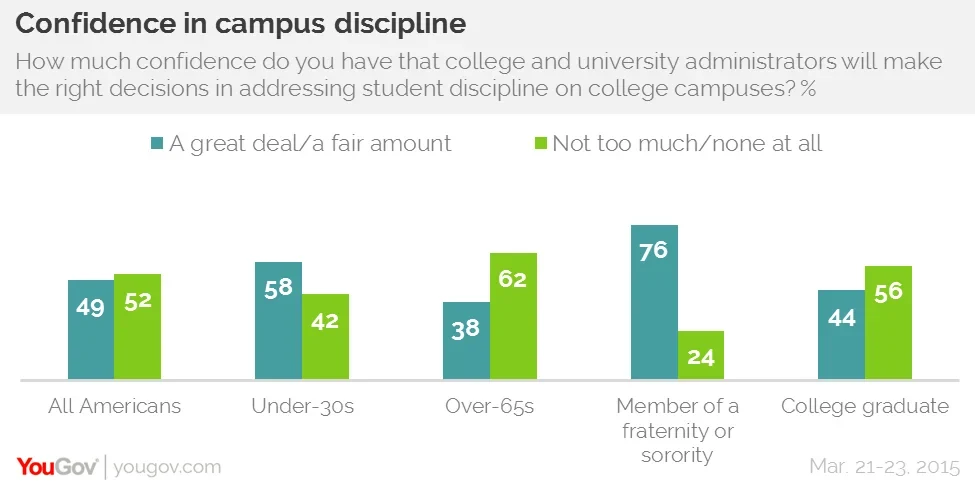
Those who have been fraternity or sorority members themselves and all adults who have attended or graduated from two or four-year colleges are not much different from the public overall on this question.
When it comes to the specific punishment of expulsion levied on the SAE students who led racist chants and expelling students who make racist comments in general, Americans support the specific punishment at the University of Oklahoma, but not the general rule. Fraternity and sorority members appear to be more willing than the public overall to accept punitive action.
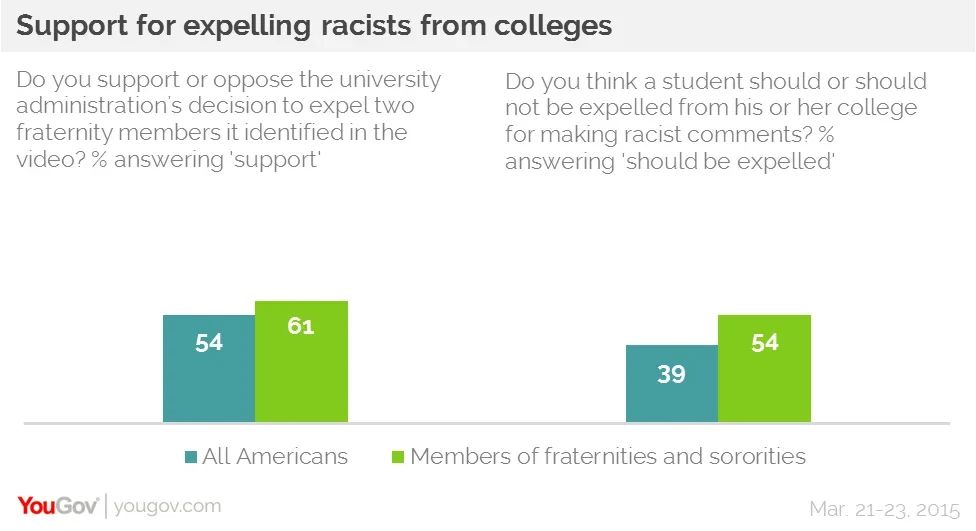
There are also racial differences on questions about the University of Oklahoma case, though both whites and blacks support punishment. That’s especially true when it comes to shutting down the fraternity. 60% of whites approve. But not quite half of whites support the punishment for the two individual students.
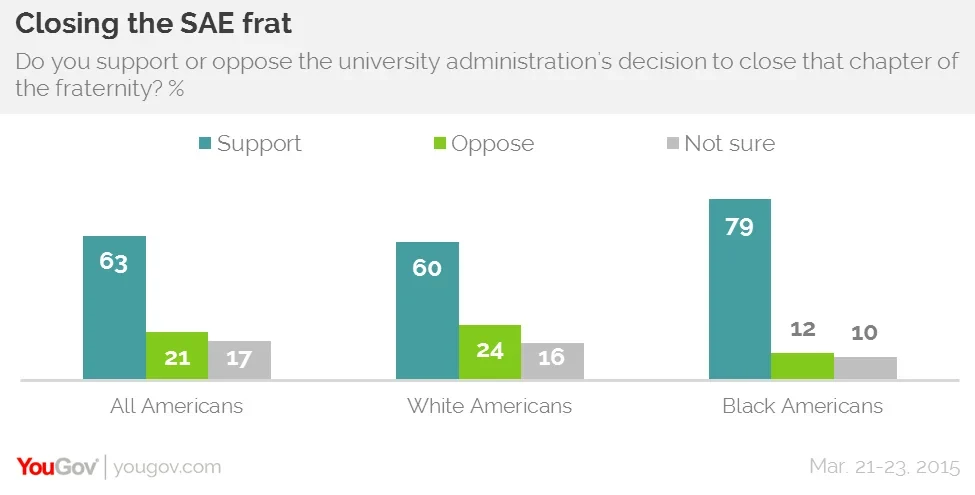
There is also a racial divide on the appropriate punishment for racist remarks made by college students. Majorities of blacks (54%) and Hispanics (51%) approve of expelling students who make racist comments; whites oppose that 49% to 32%.
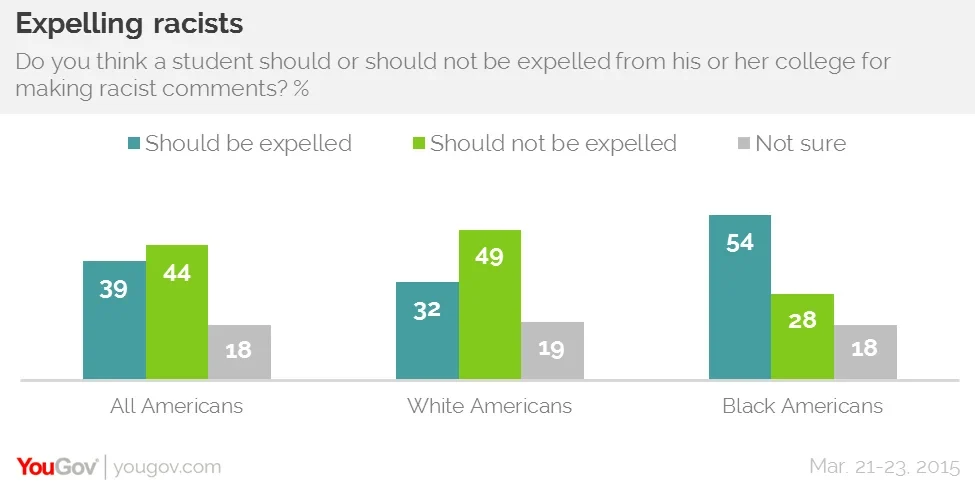
86% of the public view rape and sexual assault on campuses as a serious problem – and a majority say it is a problem that is not taken seriously enough. Just 12% say it’s been exaggerated (the poll was conducted just before the Charlotte police department released a report which found little evidence to support a Rolling Stone story about an alleged gang rape at a fraternity at the University of Virginia in 2012, but after significant criticism of the story).
There are difference between men and women; men, along with those who are in fraternities and sororities are more likely to say the problem is exaggerated.
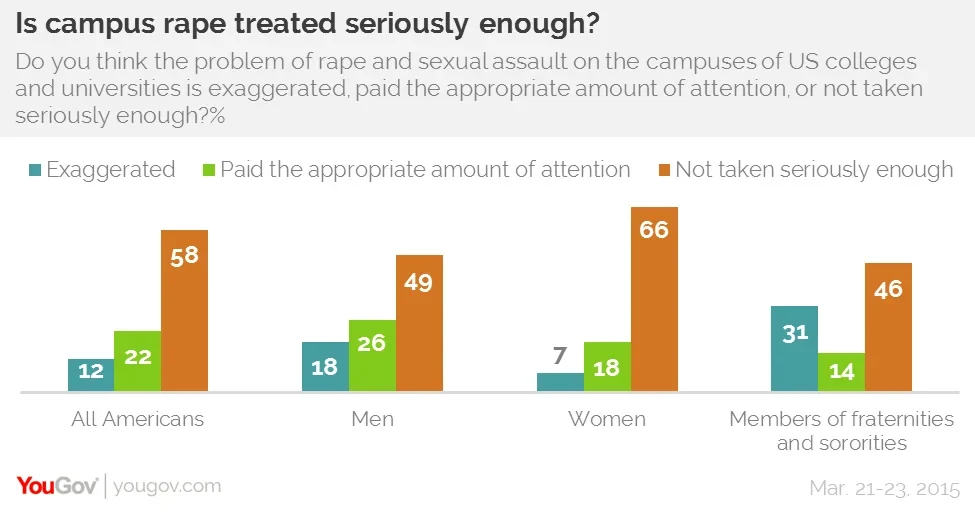
Relatively few in every group say the problem is given the right amount of attention.
There is a still interest in punishing those accused – and counting those accusations. Half the public would expel a student just for being accused of a sexual assault. Men are somewhat more likely than women to oppose expulsion; still, nearly half of men would expel the accused. Similarly, Republicans are more likely than Democrats to favor expulsion, but 46% of Republicans would still expel someone accused of a sexual assault.
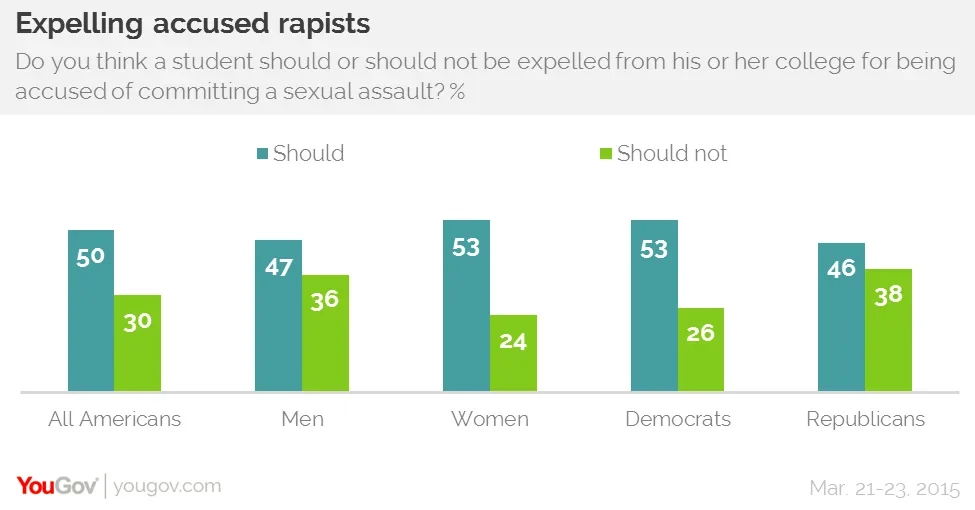
Every group overwhelmingly supports requiring colleges and universities to report the number of rapes and sexual assaults reported on their campuses.
But few see higher educational institutions caring about either the accusers or the accused in cases of alleged sexual assault. Most Americans say in those circumstances, colleges and universities care mostly about their own reputations.
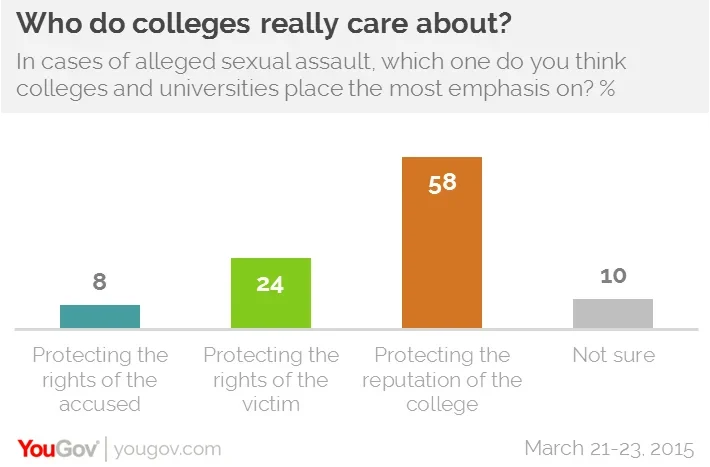
Economist/YouGov poll archives can be found here.








